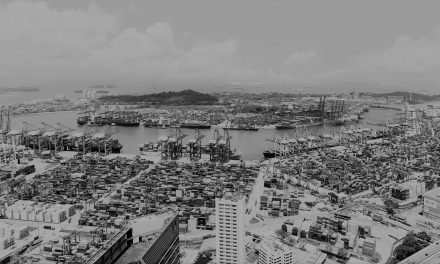Recent calls by some to cut Britain’s foreign aid budget are misplaced and ill-advised. It has been one of the achievements of Cameron’s administration that 0.72% of national income in 2013 went on aid, a massive £11.4 billion.
The foreign aid budget is actually the solution to the immigration problem British political parties are facing. Margaret Thatcher stated the core conservative view that “…an effective internationalism can only be built by strong nations which are able to call upon the loyalty of their citizens to defend and enforce civilised rules of international conduct. An internationalism which seeks to supersede the nation-state…will founder quickly upon the reality that very few people are prepared to make genuine sacrifices for it”.
This cuts to the heart of why the EU will fail, but also shows that only with the creation and fostering of sustainable and strong nation-states abroad can we secure ourselves both politically and economically. People do not want to flee stable and prosperous countries, where they can live in peace and pursue their dreams.
We must never become a nation that shuts its doors to those in great need. People are fleeing to the United Kingdom fearing for their lives. They have witnessed beatings, experienced torture and watched helplessly as their families were murdered. In the same conditions, we too would want to flee to a better country. But it is far easier for everyone to ensure that the place a person is born is the place that person wants to live.
In 2005 at the Centre for Policy Studies, David Cameron gave a speech on ‘Creating Wealth and Eliminating Poverty’. He stated “No government can run businesses and create wealth. What governments can do is create the best possible conditions for wealth creation.” This applies as much to foreign policy as it does to domestic policy.
Even aid agencies are beginning to recognise that capitalism has been immensely beneficial to the task of lifting people out of poverty: 1 billion people in the last 20 years have been lifted from extreme poverty. The creation of beneficial transactions that benefit both sides, along with the establishment of law and property rights, has served to release human creativity and allow people to plan and build on their ambitions. As Cameron noted, “A lack of formal property rights means that poor people can’t use their assets to create wealth…Without formal property rights, the basic machinery of wealth creation comes grinding to a halt.”
European chains
Despite the record giving Britain has achieved, the world is still in a bad state. As Cameron recognised in 2005, targeted aid can achieve immense things: a few million dollars eradicated smallpox in the 1970s; hopefully, international efforts will eliminate Ebola now. Yet the Commission’s EU aid organisation had higher administration costs, and is thus a less efficient channel for UK money, than DFID (figures from 2011).
There are other barriers stopping us from really improving the international environment. The unreformed EU restricts Britain from controlling our borders, and thus fosters a negative attitude to aid and immigration at home.
In Cameron’s 2005 speech, he noted a change in EU agricultural protectionism rules to Africa alone would achieve gains roughly the same as “…all countries’ official spending on development assistance today”; and yet the Common Agricultural Policy still continues.
The Common Foreign and Security Policy shackles the UK and our position on the UN Security Council into subservience to the interests of the EU, which after compromises, usually reflects no actual position. Article 34 of the Treaty on European Union of the Treaty of Lisbon requires the UK to uphold the EU position, even if it goes against our own.
The EU has also been guilty of passing 10% of aid money – around £1 billion – around to other agencies, in an aid merry-go-round, with each agency taking a percentage as the money is handed on.
Britain should be free to actively work with developing countries, especially those in the Commonwealth with whom we share a cultural connection, to build them into strong and prosperous states. This in turn will open markets for us. But the EU’s Trade Commissioner, as head of a Customs Union on the brink of a recession and with declining demographics, agrees all trade deals for all EU members, denying the UK the freedom to work closer with Commonwealth allies, which have so much potential for growth, young populations, and rapid economic growth.
Additionally, the high-sounding moral statements of the Treaty of Lisbon, which if actually adhered to would mean we cooperate with no one, should be jettisoned. No country is perfect: but an imperfect state is still a foundation through which change can be slowly wrought.
Syria 5 years ago was infinitely better for most people than Syria today; the same for Iraq 15 years ago. Saudi Arabia is renowned for its human rights abuses, yet because it is cooperative, Europe is largely silent. As Europe again looks down into another recession, the closed market of Russia also needs to be reopened. Democratic and friendly states take time; they will not come out of anarchy. Creating a European club of the self-righteous is the highway to global isolationism.

